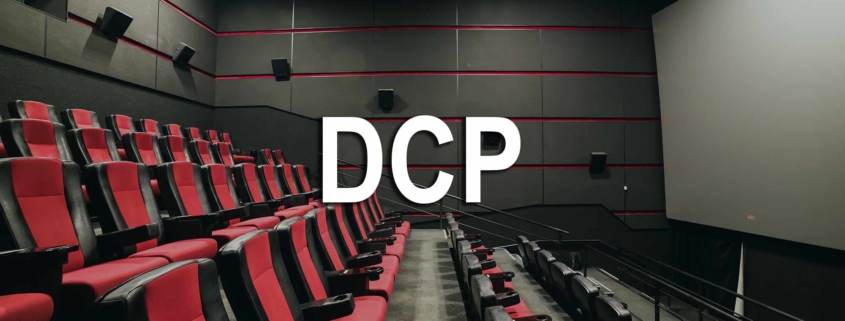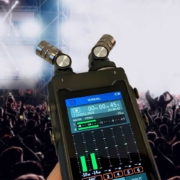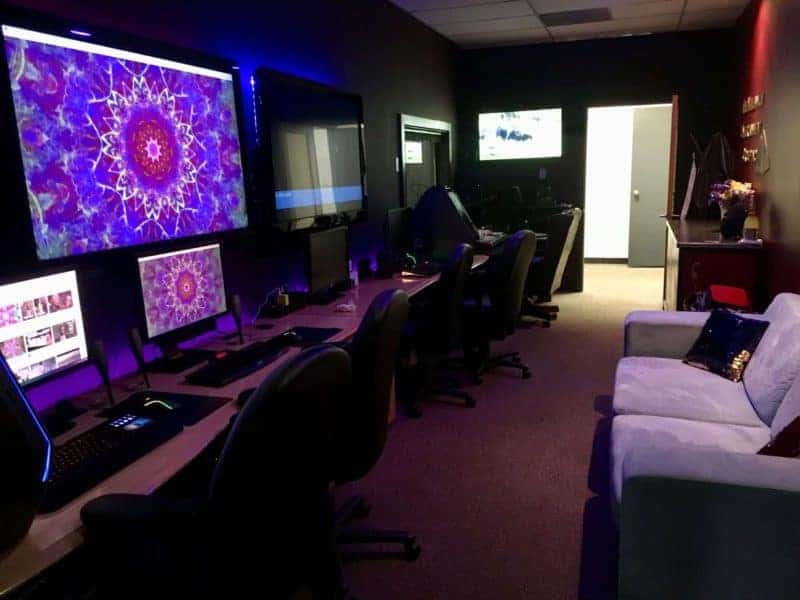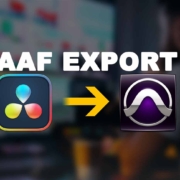What is a Digital Cinema Package (DCP) and how does it work?
Movie theaters typically require films to be in standard video formats such as Digital Cinema Package (DCP) and audio formats like Dolby Digital or DTS. These formats ensure high-quality visuals and sound that can be projected onto the big screen for an immersive cinematic experience.
What is a Digital Cinema Package?
A Digital Cinema Package (DCP) is a collection of digital files used to store and convey digital cinema audio, image, and data streams. This format is the standard delivery format for film screenings at digital cinema content across theaters worldwide.
It encompasses all essential components vital for top-tier playback quality in cinemas, ranging from meticulously crafted audio and video elements to seamlessly integrated subtitles and critical metadata information.
DCPs play a pivotal role in guaranteeing that films are showcased with precision and uniformity across diverse cinema screens, ensuring an immersive and consistent viewing experience that captivates audiences globally.
When did the DPC emerge?
The Digital Cinema Package (DCP) emerged as a cutting-edge innovation in the late 1990s, heralded by the cinema industry to revolutionize the film projection experience. Positioned as the superior alternative to traditional 35mm film, which had unfortunately lost its luster due to dwindling reliability compared to the more advanced digital home entertainment formats of that era.
How does a Digital Cinema Package (DCP) work?
A Digital Cinema Package is an indispensable asset for filmmakers looking to present their cinematic creations in a flawless digital cinema environment. This comprehensive package encapsulates all the essential audio, video, and data files necessary for projecting a movie on the grand screen.
Digital Cinema Packages (DCPs) are composed of audio, video, and metadata files, such as subtitles, that are formatted for cinema servers. These servers are connected to the digital projectors mentioned previously.
Each frame of a film is stored in a separate folder. A Digital Cinema Package (DCP) consists of XML files for metadata and MXF files. MXF (Material Exchange Format) is a video file container that adheres to the standards set by SMPTE.
Video tracks in a DCP are encoded in the JPEG-2000 codec, which is a lossless compression normally at 24 fps. This ensures high-resolution picture quality. The audio files are 24-bit linear PCM uncompressed multichannel WAV files, available in stereo or surround sound formats.
Essentially, a DCP leverages technology by packaging the audio and video components of the film into specific file formats that are customized for seamless ingestion by digital cinema projectors. This process guarantees that each frame is displayed with exceptional clarity and fidelity, delivering an immersive viewing experience for audiences worldwide.
By adopting the DCP format, filmmakers can rest assured that their creative vision will be faithfully reproduced with unparalleled quality and consistency across various theaters. This level of reliability makes DCP a vital tool for modern-day filmmakers seeking to captivate audiences and showcase their cinematic masterpieces on a global scale.
In summary, a DCP is a collection of digital files necessary for digital projection and contains:
- Video is represented as a JPEG 2000 image sequence with an XYZ color space within an MXF wrapper.
- Audio is broadcast as WAV files in an MXF wrapper at 24-bit 48kHz.
- XML files that hold everything together.
What was the largest Digital Cinema Package for a movie?
A digital cinema package can be around 150 GB or even larger. The largest Digital Cinema Package (DCP) ever created for a movie was for the film “Spider Man, No Way Home” which was about 500 GB in size and included 2D, 3D, and 4D versions.
The second largest Digital Cinema Package (DCP) created was for the film “Avengers: Endgame” at 223 GB for 2D and 237 GB for 3D.
These highly anticipated blockbusters required an enormous amount of data to deliver their cutting-edge visual and audio experience to audiences worldwide. These movies set a new standard in digital filmmaking, showcasing the capabilities of modern technology in cinematic storytelling.
How much does it cost to make a DCP?
Image by: Freepik.com
To create a Digital Cinema Package (DCP), the cost can vary depending on several factors such as the length of the film, audio and video quality requirements, any additional features like subtitles or multiple language tracks, and the service provider you choose.
Typically, creating a DCP involves costs associated with encoding, mastering, quality control checks, and delivery. Prices can range from a few hundred dollars for a short film to several thousand dollars for larger projects with complex requirements.
Most DCP houses price their services by the minute of footage, typically ranging from $8 to $15 per minute. For example, if your film is a feature film of approximately 120 minutes, you can expect to pay around $1000 or more.
Additional charges may apply for fast turnaround times or DCPs of 4K or 3D films. Quality control services, using specialized monitors calibrated for screenings, are often included in the overall price.
How do cinemas utilize a Digital Cinema Package (DCP)?
Physical DCPs are traditionally delivered to cinema managers and operators through ground courier services.
Upon reception, physical Digital Cinema Packages (DCPs) are seamlessly connected through either USB or eSATA to the cinema’s sophisticated theatre management system or playback server for efficient and secure ingestion. This seamless integration ensures a smooth and reliable process of transferring content to the playback server, guaranteeing a flawless viewing experience for audiences.
New satellite and IP-based Digital Cinema Package (DCP) delivery for enhanced distribution.
To proactively minimize any potential damage and ensure a seamless delivery process, cinemas are now utilizing advanced Digital Cinema Packages (DCPs) that are transmitted via satellite signals or secure internet channels.
This strategic approach carefully considers crucial factors like cost-effectiveness and convenience for both the cinema operators and content providers. Presently, the diverse array of DCP delivery methods encompasses satellite transmissions, internet-based transfers, and secure site-to-site file-sharing protocols to guarantee a smooth and efficient distribution process.










